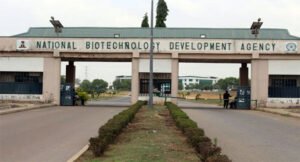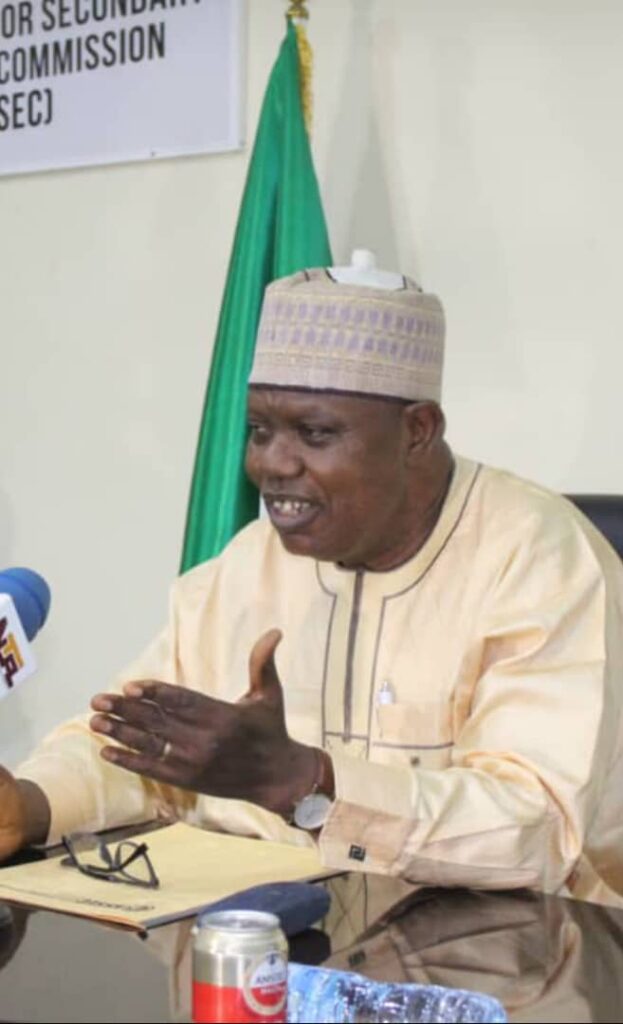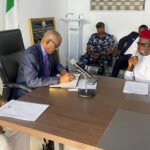Research Institutes and Agencies in Nigeria

In this article, we are going to list several of the research institutes and agencies in Nigeria. This is to make it easier for all to understand each research institutes and agencies and which government ministries and agencies they belong to.
FEDERAL MINISTRY OF AGRICULTURE AND RURAL DEVELOPMENT
- Agricultural Research Institute of Nigeria
- Agricultural Rural Management Training Institute (ARMTI), Ilorin: Training of agricultural extension workers, research in agricultural management.
- Cocoa Research Institute of Nigeria, Ibadan: Research into cocoa, kola, cashew, coffee and tea.
- Federal College of Wildlife Management, New Bussa, Niger State: Training and research into domestication and management of tropical wildlife.
- Forestry Research Institute of Nigeria (FRIN), Ibadan: Research into natural forests, plantations, woods products and wild life.
- Institute of Agricultural Research and Training, Obafemi Awolowo University, Ibadan: Conducts research and training in tropical agricultural crops and animals.
- Institute for Agricultural Research and Extension Services, ABU-Zaria: The institute is mandated to conduct research and training in the production and management of mandate crops like sorghum, maize, groundnut, cotton, etc that are commonly grown in the savannah region of Nigeria.
- Lake Chad Research Institute, Maiduguri: Research into variety improvement of wheat and barley, improvement of farming systems and all agricultural crops in Borno and Adamawa States.
- National Animal Production Research Institute, Zaria: The main mandate is to research into the production and management of tropical livestock like goat, sheep, camel, horse and cattle.
- National Cereal Research Institute, (NCRI), Bida: Research into rice, soya-beans, beniseed and sugarcane.
- National Centre for Agricultural Mechanization NCAM Ilorin, CAP. N13, LFN, 2004 (REPEAL AND RE-ENACTMENT) BILL, 2010 Provide specialized industrial training and research facilities for professionals and students of higher institutions.
- National Centre for Genetic Resources and Biotechnology (NACGRAB), Ibadan: by Decree 33 of 1987 to conduct research, gather data and disseminate technological information on matters relating to genetic resources conservation, utilization and biotechnology applications.
- National Horticultural Research Institute, NIHORT I Ibadan: Research into fruits, vegetables, their processing and preservation; development of indigenous ornamentals.
- National Institute for Fresh Water Fisheries Research, New Bussa: Research into fresh water fisheries and other aquatic resources in rivers, natural and man-made lakes.
- National Root Crops Research Institute NRCRI Umudike, Research into the genetic improvement of Cassava, Yam, Cocoyams, Irish potato, ginger and sweet potato and total farming systems.
- National Stored Products Research Institute NSPRI Ilorin.
- National Veterinary Research Institute (NVRI), Vom: Research into livestock diseases and their control including the production of vaccines and sera.
- Nigerian Institute for Oil Palm Research (NIFOR).
- Nigerian Institute for Oceanography and Marine Research (NIOMR) Victoria Island, Lagos State
- Rubber Research Institute of Nigerian (RRIN), Benin: Research into natural rubber and its by-products.
FEDERAL MINISTRY OF ENVIRONMENT
- Forestry Research Institute of Nigeria (FRIN), Ibadan: Research into natural forests, plantations, woods products and wild life.
- Nigeria National Park Service (NPS) by (g) Decree No. 46 of 1979 followed by Decree No. 36 of 1991, to promote, develop and carry out research on the wildlife resources of Nigeria, publishing or sponsoring the publication of the results of research, particularly in relation to problems affecting Nigeria.
FEDERAL MINISTRY OF HEALTH (FMOH).
- Nigerian Institute for Medical Research (NIMR) Yaba, under the National Science and Technology enabling act of 1977: To conduct research into diseases of public health importance in Nigeria and develop structures for the dissemination of research findings.
- National Agency for Food and Drug Administration and Control (NAFDAC) , Abuja.
- Nigerian Institute for Pharmaceutical Research and Development NIPRD Abuja established by order No. 33 Vol. 74 of 11th June 1987 part B under the Science and Technology Act Cap 276 to undertake research and development work on drugs, biological products including vaccines and pharmaceutical raw materials from indigenous natural resources and by synthesis using appropriate science and technology methodologies.
FEDERAL MINISTRY OF SCIENCE AND TECHNOLOGY
- Energy Commission of Nigeria (ECN), Abuja: was established by Act No. 62 of 1979 to conduct research and to develop energy facilities for Nigeria, for ensuring adequate supply of energy at affordable cost and to enhance national security.
- Renewable Energy Centres under Energy Commission of Nigeria:
- National Centre for Energy Research and Development (NCERD) Nsukka was established by an Act of the National Assembly in 1980. decrees number 12 of 1988 and number 19 of 1989 and is to carry out research, development, dissemination and manpower training in the various areas of renewable and non-renewable energy resources such as Solar, Biomass, Wind and Hydro.
- National Centre for energy and Environment, Benin.
- Centre for Energy Research and Development, Ile-Ife (CERDI).
- Centre for Energy Research and Development Zaria (CERDZ).
- National Centre for Energy Efficiency and Conservation, Lagos.
- Centre for Energy Research CERS Sokoto.
- National Centre for Hydro Power Research and Development (NCHPRD) to conduct research and training that will enhance the development and application of hydropower as an important component of diverse energy sources.
- National Centre for Petroleum Research and Development (NCPRD).
- Federal College of Chemical and Leather Technology (CHELTECH), Zaria: To train middle-level manpower in all aspects of chemical and leather technology.
- Federal Institute of Industrial Research (FIIRO), Oshodi, Lagos: Research and development into food processing, agro-allied, textiles, pulp and paper, design and fabrication of prototypes, micro-electronic and information services.
- National Agency for Science and Engineering Infrastructure (NASENI), Abuja: by Act No. 33 of 1992 to enhance the development and entrenchment of a new research and development tradition in Nigeria so as to establish an accountable corporate research management system and achieve a high research and development output and revenue; establish, maintain and supervise science and engineering infrastructure development complexes and centres; NASENI institutes and their mandates are;
- Scientific Equipment Development Institutes (SEDI) in Enugu and Minna with a mandate to develop and produce scientific equipment and their production systems, and the ceding of these technologies to SMSs.
- Electronic Development Institute (ELDI), Awka with mandate to develop and produce electronic devices and assemblies, computer technologies and their production systems, and the ceding of the technologies to SMEs.
- Hydraulic Equipment Development Institute (HEDI), Kano with a mandate to develop and produce hydraulic and pneumatic machinery, materials, fittings and their production systems, and the ceding of the technologies to SMEs.
- Engineering Materials development Institute (EMDI), Akure with mandate to develop and produce engineering materials and their production systems, and the ceding of the technologies to SMEs.
- National Engineering Design Development Institute (NEDDI), Nnewi with a mandate to develop engineering design capacity in the country and dissemination of same to SMEs with a view to ensuring that Nigerian made products attain standards specifications and make then globally acceptable.
- Power Equipment and Electrical Machines Development (PEEMADI), Okene with a mandate of developing and manufacture of machines to manufacture power equipment and electrical machines.
- Prototype Engineering Development Institute (PEDI), Ilesha with a mandate of developing engineering prototypes and their production systems and teh transfer of these to private sector satellite industries.
- Advanced Manufacturing Technology Project (AMT-P), Jalingo – The development of components, machineries, their production systems and the transfer of these to private sector satellite industries.
- National Board for Technology Incubation (NBTI) established under Decree No. 5 of 1995 to co-ordinate and supervise the activities of the TICs which had increased to fifteen (15).
- National Biotechnology Development Agency (NABDA), Abuja: To empower the nation to become self-reliant in the development and application of biotechnology-based products and services.
- National Centre for Genetic Resources and Biotechnology (NACGRAB), Ibadan: by Decree 33 of 1987 to conduct research, gather data and disseminate technological information on matters relating to genetic resources conservation, utilization and biotechnology applications.
- National Center for Technology Management (NACETEM), Ile-Ife: To train and carry out research in technology management and developing high-level manpower in science and technology policy formulation.
- National Information Technology Development Agency (NITDA) Abuja by Act 2007 to create a frame work for the planning, research, development, standardization, application, coordination, monitoring, evaluation and regulation of Information Technology practices.
- National Office for Technology Acquisition and Promotion (NOTAP), Abuja: To encourage a more effective process for the identification and selection of foreign technology as well as vet, register and monitor contract agreements for the acquisition of foreign technologies by Nigeria Local Patents registration.
- National Space Research and Development Agency (NASRDA), Abuja: Pursue the development and application of space science and technology by developing indigenous capabilities for research and development to boast the socio-economic potential of the nation. The Agency shall operate through the following Development Centres.
- Centre for Basic Space Science and Astronomy, Nsukka, shall- (a) provide sound education, research and knowledge in- (i) basic space science, (ii) astronomy and astrophysics, and carry out other activities that are necessary for the successful implementation of their mandates.
- National Centre for Remote Sensing(NCRS), Jos shall – (a) be responsible for harmonizing research and development in space science and technology Covering remote sensing programs, applications and researches Liberty dam, along Lamingo Golf Club, Rizek Village, Jos East Local Government Area, Plateau State Nigeria.
- Centre for Space Science and Technology Education, Jle-Ife, state shall – (a) develop curriculum, skills and knowledge of university educators, research scientists and other professionals in the Maintenance of register of space objects Development Centers of the Agency application of remote sensing.
- Centre for Satellite Technology Development, Abuja shall develop trained engineers and scientists in the rudiments or satellite technology building, launching, telemetry, tracking and control of all kinds of satellite through earth observation, communications, meteorology and scientific research.
- Centre for Space Transportation and Propulsion, Epe, shall ensure and sustain rapid advances in the propulsion systems science ami technology and rocketry.
- Centre for Geodesy and Geodynamics, Toro, Bauchi shall- (a) facilitate and sustain the growth in capacity for geodesy surveying and mapping; (b) monitor crustal detonation and subsidence.
- Nigerian Building and Road Research Institute (NBRRI) was established on 1st April 1978 to research into the use of local materials and methods in road and building construction.
- Regional Programme for Technology Management (REPTEM), Lagos: To embark on research and development of management of science and technology resources in the West African Sub-Region.
- Nigerian Institute for Trypanosomiasis Research (NITR), Kaduna: Research into Trypanosomiasis and onchocerciasis generally, especially the pathology, immunology and methods of treatment of the diseases.
- Nigerian Institute of Science Laboratory Technology (NNISLT), Ibadan: To advance science laboratory technology in Nigeria.
- Nigeria Institute of Transport technology (NITT) was established in the year 1986 by Decree No 6 of March 14 now CAP 116 to(f) provide equipment and facilities for the encouragement, promotion and conduct of research in all fields of transportation.
- Nigerian Natural Medicine Development Agency (NNMDA), Lagos: Initiate policy and improve the knowledge on the practice and potential of natural medicine with a view to fully developing and integrating it into the National Health care delivery system.
- Nigerian Building and Road Research Institute (NBRRI): Research into the use of local materials and methods in road and building construction.
THE FEDERAL MINISTRY OF INFORMATION, CULTURE AND TOURISM
- National Council for Arts and Culture (NCAC): NCAC was established by Decree No. 3 of 1975 and amended by Decree No. 5 of 1987 (now Cap 248 Laws of the Federation 1990) Based on the statutory functions of the Council, as stated in Decree No. 3 of 1975 and amended by Decree No. 5 of 1987 the under-listed are the schedule of duty:- to promote and develop the revival of Nigerian Arts and Culture through research and publications. Establishing specialized Research Centres/Craft Development Centres/ Herbal Gardens Projects.
- National Commission for Museums and Monuments (NCMM) The Director of Research and Training shall be responsible to the Director-General for co-ordinating research staff and research projects of the Commission and the collection of stock for such museums and identification of antiquities to be declared as monuments.
- Nigerian Tourism Development Corporation (NTDC) shall be (b) to promote and undertake research in the field of tourism.
- National Gallery of Art (NGA) established by the National Gallery Of Art Decree No. 86 1993 Act Cap. N41 L.F.N. 2004 Act NO. 9 2004 shall (b) to promote research, education and appreciation in art and works of art.
- National Institute for Cultural Orientation (NICO).
- Centre for Black and African Arts and Civilization (CBAAC) The functions of the Centre are clearly spelt out in section 4 of Decree No.69 of 1979 to achieve its statutory responsibilities, the Centre undertakes the following activities and programmes on a regular basis: (a)Research (b) Publications (c) Conferences (d Workshops (e) Exhibitions (f) Public Lectures (g) Symposia (h) Library Service (i) Archival services
- National Troupe /National Theatre of Nigeria (NT / NTN)
- National Institute for Hospitality and Tourism (NIHOTOUR) The core mandate of the Institute is to provide training and manpower development for the Hospitality and Tourism Industry in Nigeria and the entire West Africa Sub-region.

FEDERAL MINISTRY OF INDUSTRY, TRADE AND INVESTMENT
- National Bureau of Statistics Act, 2007 to replace the Statistics Act, Cap 446, LFN, 1990 (d) Research and Training Institutions, including higher education institutions Plot 762, Independence Avenue, Central Business District, FCT, Abuja.
- Federal School of Statistics.
(1) The Federal School of Statistics shall – (c) serve as a research center and bilingual school on statistics and related subjects in the West African Sub-region. - Standards Organization of Nigeria (SON), Abuja.
FEDERAL MINISTRY OF EDUCATION
- National Library, Abuja established by National Library Act. Of 1964 amended Decree 29 of 1970 to: – Provide vital support for the intellectual efforts of the people in all activities directed toward progress and National development in all spheres.
- National Mathematical Centre Abuja was established by decree (Decree No. 40) promulgated December 12, 1989 to create a focal point for advanced research and training in the mathematical sciences and its applications.
FEDERAL MINISTRY OF JUSTICE
- National Human Right Commission was established by NHRC Act, 1995, as amended by the NHRC Act, 2010shall- (d) undertake studies on all matters pertaining to human rights; (e) publish, from time to time, reports on the state of human rights protection in Nigeria.
- Institute of Legal and Advanced Studies
BUDGET AND NATIONAL PLANNING
- Nigerian Institute of Social and Economic Research NISER Ibadan, Oyo State.
FEDERAL MINISTRY OF POWER WORKS AND HOUSING
- National Power Training Institute of Nigeria was established on 23rd March 2009 to provide training for power sector personnel and coordinate training activities in the sector.
MINISTRY OF SOLID MINERALS
- Centre For Solid Minerals Research & Development
Tudun Wada Main Campus, Kaduna Polytechnic, Kaduna, Kaduna State, Nigeria - National Metallurgical Development Centre (NMDC) to carry out applied research on and develop both conventional and new refractory products using indigenous mineral raw materials;
(e) conduct applied research into the quality of coals available in Nigeria and develop metallurgical coke from indigenous coal samples; - Nigerian Institute of Mining and Geosciences Tundun Wada.
- Nigerian Geological Survey Agency (ESTABLISHMENT) ACT,2006 to promote, among other things, the research for, exploration and exploitation of specialized geo-scientific services to both public and private sectors (d) undertake research In the field of geo-sciences and mineral resources in Nigeria
MINISTRY OF PETROLEUM
- Petroleum Training Institute. The functions of the Institute shall be to
(a) provide courses of instruction, training and research in oil technology and produce technicians and such skilled personnel normally required for oil production;
MINISTRY OF TRANSPORT
- Nigeria Air Space Management Agency (NASMA) established by the Act of Parliament No. 48, commencement date of 29th May 1999, to among other. things encourage research and development relating to all aspects of the Nigerian airspace designed to improve air safety.
- Nigerian Institute of Transport Technology (NITT) was established in the year 1986 by Decree No 6 of March 14 (now CAP 116 of the Federal Laws of Nigeria). The Institute was established as a Transport Management Development and Research Institute for Nigeria and the West African Sub-region.
- Nigerian College Of Aviation Technology (NCAT) (formerly known as Nigerian Civil Aviation Training Center) was set up by Act. No 31 of 1964 to conduct: Civil Aviation courses… Training on equipment and necessary facilities for technical research or normal use.
- Nigeria Meteorological Agency (NMA) came into existence by an Act of the National Assembly – NIMET (Establishment) ACT 2003 to (m) train, conduct and undertake research particularly in the field of tropical, agricultural, hydro and marine meteorology and other related areas of meteorology; (c) Meteorological Research and Training Directorate for the services— (i) the conduct and standard and consistent meteorological research; (ii) the training of all classes of meteorologists; (iii) the provision of regular training for all categories of Agency staff; (iv) the provision of consultancy services in the field of meteorology; (v) the execution and satisfaction of the research and training requirements of the Agency in general; and (vi) the conduct of such other research or training activities as the Board may, from time to time, direct
FEDERAL MINISTRY OF YOUTH AND SPORT
- National Institute for Sports; and National Environmental Standards and Regulations Enforcement Agency (NESREA) (Federal Environmental Protection Agency (FEPA), Abuja)
- National Defence College, Kaduna. The Objectives of the College are to: vi. Undertake advanced academic research at national strategic policy level.
- National Institute of Policy and Strategic Studies, Kuru.
ALLIED INSTITUTES AND COLLEGES
- National Agricultural Seeds Agency, FCT
- Fresh Water Station – Brakish Water Station, Rivers
- National Programme on Agriculture and Food Security, FCT
- Federal College of Produce Inspection and Stored Products Technology, Kano
- Federal College of Animal Health & Production Technology, Plateau
- Federal College of Agriculture, Ondo
- Federal College of Agriculture, Ishiagu, Ebonyi
- Federal College of Freshwater Fisheries Technology, Niger
- Federal College of Animal Health & Production Technology, Vom
- Federal College of Freshwater Fisheries Technology, Baga, Borno
- Federal College of Fisheries & Marine Technology, Lagos
- Federal College of Horticulture Dadin-Kowa, Gombe
- Federal College of Agriculture, Moore Plantation, Oyo
- Federal College of Veterinary & Medical Laboratory Technology , Vom
- Federal College of Land Resources Technology, Owerri, Imo
- Federal College of Land Resources Technology, Kuru Jos , Plateau
- Federal Cooperative College, Ibadan, Oyo
- Federal Cooperative College, Kaduna
- Federal Cooperative College, Oji River, Enugu
- College of Agriculture and Animal Science, Division of Agric, ABU, Kaduna
- Stored Product Research, Kogi
- Division of Agricultural College ABU, Kaduna
- University of Agriculture Abeokuta, Ogun
For more information, please get in touch with us








